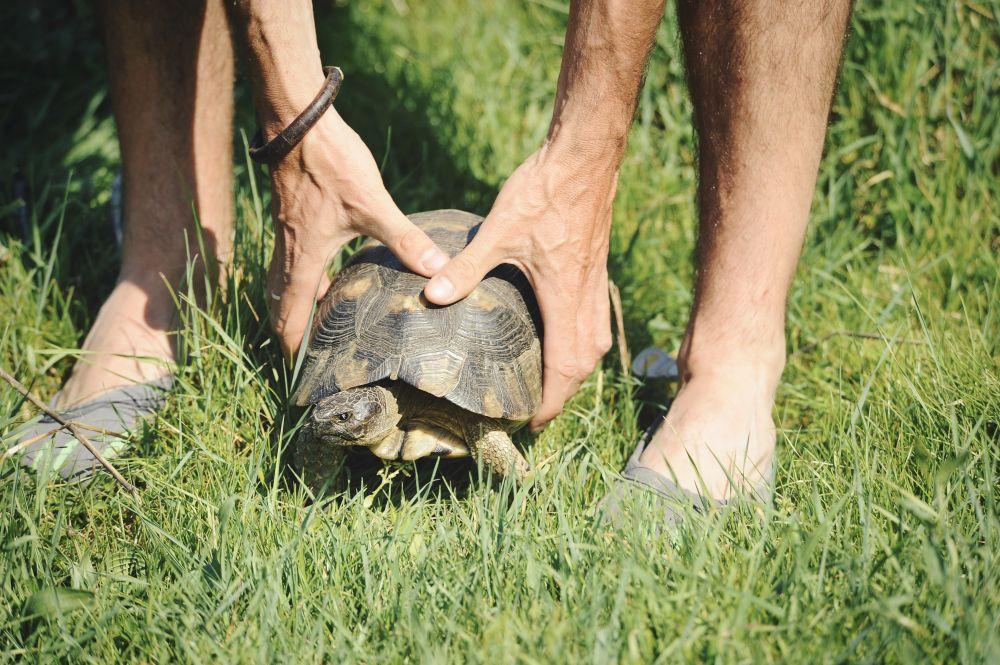

Whether it’s the lively chatter of parrots, the quiet grace of turtles, the playful antics of rabbits, or the curious nature of guinea pigs, welcoming an exotic pet into your home brings unique companionship.
However, they are not the easiest or friendliest pets to take care of. What’s more, these captivating creatures come with distinct needs and behaviors that present their own set of challenges.
So, if you want to build a strong bond with your exotic pet, you have to go beyond basic pet care and learn the importance of patience and consistency. But what exactly are the advantages of having a deep understanding of species-specific characteristics and care requirements?

Responsible exotic pet care begins with understanding that what works for a cat or dog may not necessarily apply to a reptile, bird, or small mammal. Therefore, conducting thorough research into the species-specific requirements of your chosen exotic pet is paramount.
This specialized care encompasses providing a suitable and enriching environment that mimics their natural habitat, a species-appropriate diet, pet wellness exams, and opportunities for mental and physical stimulation. Such tailored practices are not only essential for their well-being but also form the foundation for building a strong bond.
Once you understand your exotic pet’s specific needs, the next step is to actively foster a strong bond with your pet. To help you connect with your unique companion, you can follow these tips:
Providing appropriate housing and enriching environments is crucial for your exotic pet’s well-being, as it helps them feel secure and comfortable. At the same time, you need to minimize stressors like loud noises or sudden movements to create a calm atmosphere. Remember, a safe and comfortable space reduces anxiety, allowing your pet to relax and open up to interactions, which is essential for building a strong bond with your pet.
Consistency builds trust with exotic pets as predictable routines help them feel secure and understand what to expect from you. So, establish regular schedules for feeding, cleaning, and interaction.
Building a positive bond with your pet relies heavily on positive reinforcement. However, remember to engage in gentle handling and ensure that all interactions are positive and rewarding.
Use appropriate pet treats to reinforce desired behaviors and create pleasant associations with your presence. This approach encourages your exotic pet to view you as a source of comfort and rewards.
Effective exotic pet care involves understanding your pet’s unique language, so take time to learn their body language, vocalizations, and other subtle cues.
As you learn to recognize the signs of comfort versus stress, you’ll be able to make informed decisions regarding your interactions. Also, respond appropriately to your pet’s signals to demonstrate respect and build trust.
Dedicate consistent quality time to engage in species-appropriate activities with your exotic pet. For example, you can utilize playtime, training, or even quiet companionship to provide mental and physical stimulation. With his dedicated attention, you can show your pet they are valued, enriching their life and deepening your bond over time.
Building trust with exotic pets requires considerable patience and consistency. Remember that forming a strong bond is a gradual process that can’t be rushed.
Additionally, avoid forcing interactions or pushing your pet beyond their comfort zone, as this can undermine trust. Instead, opt for consistent, gentle efforts that will yield the most rewarding long-term relationships.
Building a strong bond with exotic pets often requires tailoring your approach to their species:
Building a strong bond with your exotic pets is a truly rewarding experience, enriching both your lives. However, keep in mind that this connection thrives on a foundation of patience, consistency, and a profound understanding of their unique behaviors and needs.
For expert guidance in nurturing your unique companion’s health and happiness, consider consulting an exotic animal specialist. Contact Beecroft Bird & Exotics Veterinary Clinic for further advice and support on exotic pet care.
